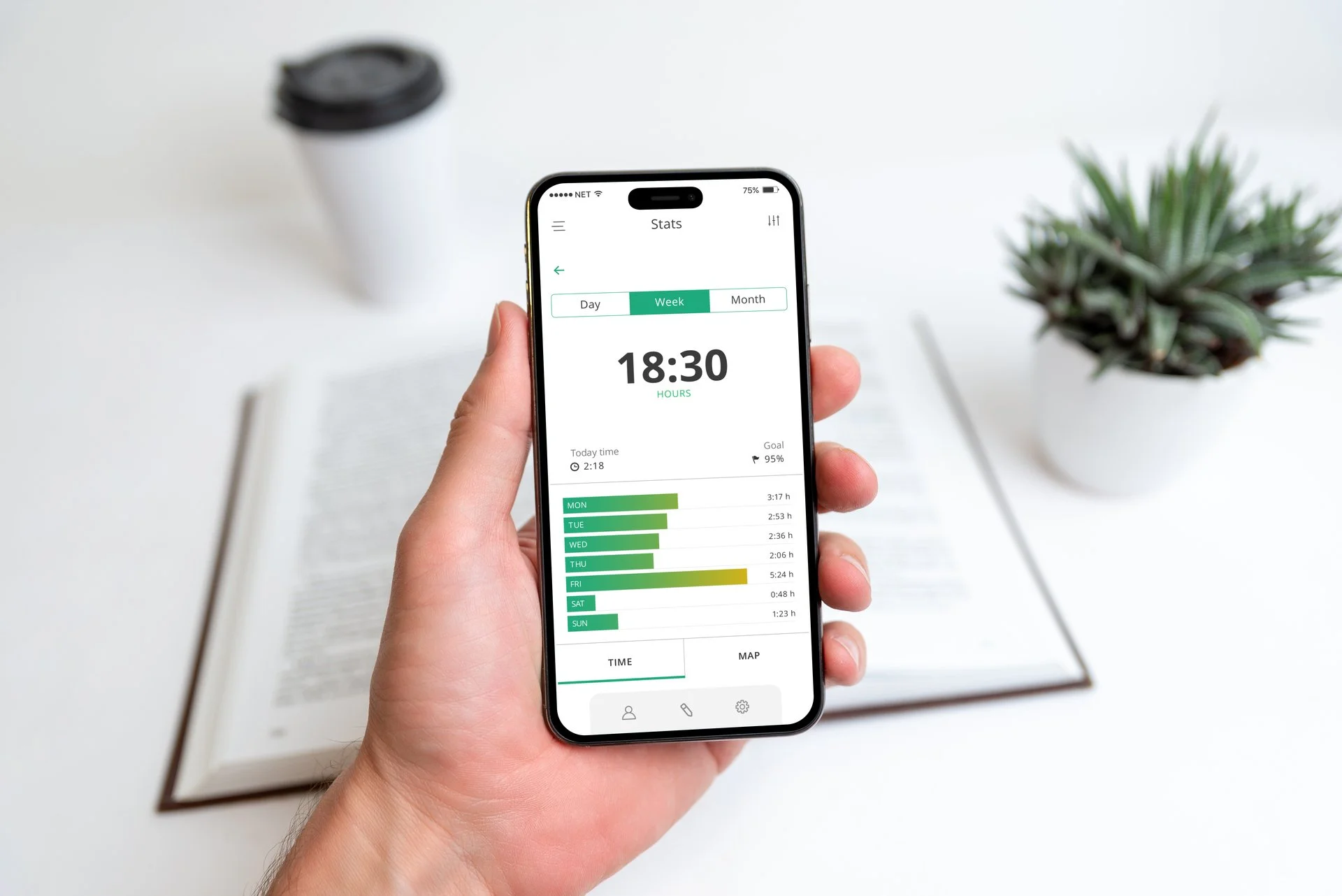Study Schedule Tips for USMLE, COMLEX, or NBME
United States medical licensing exams represent one of the most challenging hurdles in your journey to becoming a physician. Whether you're preparing for the USMLE Step 1, Step 2 CK, Step 3, COMLEX-USA Level 1, 2, or 3, or various NBME shelf exams, the difference between success and disappointment often comes down to one crucial factor: your study schedule.
Creating an effective study schedule isn't just about blocking out hours on a calendar. It's about understanding how your brain learns, matching your preparation strategy to the specific demands of each exam, and building sustainable habits that will carry you through months of intensive preparation. Let's explore how to construct a study schedule that maximizes your chances of achieving your target score.
Understanding the Foundation: Why Traditional Study Schedules Fail
Before creating your optimal schedule, it's essential to understand why many medical students struggle despite dedicating countless hours to studying. The most common mistake is treating all study time as equal. Spending eight hours passively reading through First Aid isn't the same as spending four hours actively practicing questions and reviewing your mistakes.
Medical licensure exams test your ability to apply knowledge under time pressure, not just your capacity to memorize facts. Your study schedule should reflect this reality by prioritizing active learning methods that closely mirror the exam experience. This means your schedule should dedicate significant time to question banks, practice exams, and spaced repetition rather than passive content review.
The Three-Phase Approach to Medical Board Exam Preparation
Effective study schedules for medical licensing examinations should follow a three-phase approach that gradually shifts your focus from knowledge acquisition to application and refinement. Understanding these phases helps you allocate your time properly and avoid common pitfalls.
Phase 1: Foundation Building (40% of total study time)
During this initial phase, your primary goal is to establish a solid knowledge base across all tested subjects. For USMLE Step 1, this means covering pathology, physiology, anatomy, pharmacology, microbiology, and pathophysiology. COMLEX preparation requires additional emphasis on osteopathic manipulative medicine principles and techniques.
Your daily schedule during this phase should include dedicated blocks for content review using high-yield resources. However, even during foundation building, you should begin incorporating practice questions to identify knowledge gaps and reinforce learning. Aim for a 70-30 split between content review and question practice during this phase.
Phase 2: Application and Integration (45% of total study time)
The second phase represents the heart of your preparation, where you shift focus toward applying your knowledge through extensive question practice. This is where most successful students spend the majority of their study time, and rightfully so. Medical licensing exams are fundamentally application-based assessments that require you to synthesize information quickly and accurately.
During this phase, your daily schedule should shift to emphasize question practice, with approximately 60-70% of your time spent on question banks. The remaining time should focus on targeted content review based on your question performance. This approach ensures you're continuously identifying and addressing weaknesses while building the pattern recognition skills essential for exam success.
Phase 3: Final Preparation and Peak Performance (15% of total study time)
The final phase is about fine-tuning your performance and building confidence for test day. Your schedule during this period should emphasize full-length practice exams under timed conditions, final review of high-yield topics, and maintaining your physical and mental well-being.
This phase isn't about learning new material but rather reinforcing what you already know and optimizing your test-taking strategy. Many medical examiners make the mistake of trying to cram new information during the final weeks, which often leads to confusion and a decline in confidence.
Crafting Your Daily Schedule: The Science of Productive Study Sessions
The structure of your daily study schedule can significantly impact your learning efficiency and retention. Research in cognitive psychology provides clear guidance on how to optimize your daily study routine for maximum effectiveness.
Morning Sessions: Tackling High-Cognitive Load Activities
Your brain's cognitive capacity is typically highest in the morning hours, making this the ideal time for challenging activities that require deep concentration. Schedule your most difficult subjects or question sets during these peak hours. For most students, this means tackling their weakest subjects or working through challenging question blocks first thing in the morning.
Consider starting each day with a brief review session covering material from the previous day. This practice, known as retrieval practice, strengthens memory consolidation and helps identify areas that need additional attention. Spend 15-20 minutes each morning reviewing flashcards or notes from yesterday's study session before diving into new material.
Afternoon Sessions: Active Learning and Application
The afternoon hours are perfect for active learning techniques that require sustained attention but may not demand peak cognitive performance. This is an ideal time for question bank practice, where you're applying knowledge rather than acquiring it. The repetitive nature of question practice can help maintain focus even as your cognitive resources begin to decline throughout the day.
Structure your afternoon question sessions with intentional breaks between blocks. After completing each set of questions, take time to thoroughly review explanations, especially for questions you answered incorrectly. This review period is where much of your learning occurs, so resist the temptation to rush through explanations in favor of completing more questions.
Evening Sessions: Review and Consolidation
Evening study sessions should focus on review and consolidation activities that don't require intense concentration. This is the perfect time to review flashcards, read through notes, or watch educational videos. These activities help reinforce the day's learning while allowing your brain to begin processing and consolidating new information.
End each study day with a brief planning session for the following day. Review your progress against your study schedule, identify any topics that need additional attention, and set specific goals for tomorrow's sessions. This practice helps maintain momentum and ensures you stay on track with your overall preparation timeline.
Building Flexibility and Sustainability Into Your Schedule
One of the biggest mistakes students make when creating study schedules is building rigid plans that don't account for the realities of life and learning. Effective study schedules must be both flexible enough to accommodate unexpected challenges and sustainable enough to maintain over months of preparation.
The 80% Rule: Planning for Imperfection
When creating your study schedule, plan to accomplish only 80% of what you think you can handle. This buffer accounts for days when you're sick, family emergencies, unexpected academic obligations, or simply days when you need mental rest. Students who plan to study 12 hours daily for four months straight invariably burn out or fall behind when life intervenes.
Instead of cramming every available hour with study time, build regular rest periods into your schedule. Include at least one full day off each week, and consider planning lighter study days around other commitments to maintain a balanced schedule. This approach helps maintain motivation and prevents the burnout that derails many students' preparation efforts.
Progressive Overload: Gradually Increasing Study Intensity
Just as athletes gradually increase training intensity to build performance, your study schedule should progressively increase in difficulty and time commitment. Start with manageable daily study goals and gradually increase both the duration and intensity of your sessions as your stamina and focus improve.
Begin your preparation with 4-6 hours of daily study time and gradually work up to 8-10 hours as you approach your exam date. This progressive approach helps build sustainable study habits while preventing early burnout. Remember that consistency over months is more valuable than intensity over days.
Tracking Progress and Making Strategic Adjustments
Creating your initial study schedule is only the beginning. Successful exam preparation requires regular monitoring of your progress and strategic adjustments based on your performance and evolving needs.
Establishing Meaningful Metrics
Track metrics that actually predict exam performance rather than vanity metrics that make you feel productive. Question bank scores, particularly trending averages over time, provide much better indicators of your progress than hours studied or pages read. Focus on tracking your performance in specific subject areas and question types rather than overall study time.
Set up weekly review sessions where you analyze your question bank performance, identify persistent weak areas, and adjust your study focus accordingly. If you're consistently missing cardiovascular pathology questions, for example, dedicate additional time to that topic in the following week's schedule.
The Art of Strategic Pivoting
Effective study schedules must evolve in response to your performance and changing needs. If you discover through practice questions that your pharmacology knowledge is weaker than expected, be willing to reallocate time from stronger subjects to address this gap. This flexibility requires honest self-assessment and the courage to deviate from your original plan when data suggests a different approach.
Consider conducting formal schedule reviews every 2-3 weeks, where you evaluate your progress against your goals and make necessary adjustments. These reviews should consider both your question bank performance and your subjective confidence levels across different topics.
Optimizing Your Environment and Habits for Success
The effectiveness of your study schedule depends not only on what you study and when, but also on how you create an environment that supports consistent, high-quality learning. The best schedule in the world won't help if you're constantly distracted or studying in suboptimal conditions.
Creating Your Optimal Study Environment
Designate specific spaces for different types of study activities. Use your most comfortable, distraction-free space for challenging activities, such as question blocks or reviewing difficult content. Consider having a separate space for lighter review activities, such as flashcards or educational videos. This environmental cueing helps your brain automatically shift into the appropriate mode for different activities.
Minimize decision fatigue by establishing consistent routines around your study sessions. Use the same workspace, keep the same materials readily available, and follow similar patterns for breaks and transitions between subjects. These habits reduce the mental energy required to start studying and help maintain focus throughout your sessions.
Managing Energy and Motivation Over Time
Long-term exam preparation is as much about managing your energy and motivation as it is about covering material. Build variety into your study schedule to prevent monotony and maintain engagement. Alternate between different question banks, vary your content review methods, and occasionally study in different locations to keep your routine fresh.
Plan regular rewards and milestones throughout your preparation timeline. Celebrate completing major content areas, achieving target question bank scores, or reaching time-based milestones in your schedule. These positive reinforcements help maintain motivation during the inevitable difficult periods of your preparation.
Final Thoughts: Your Schedule as a Living Document
Creating the best study schedule for medical licensing exams requires understanding that your schedule is a living document that should evolve with your needs and progress. The most successful students are those who create thoughtful initial plans but remain flexible enough to adapt as they learn more about their strengths, weaknesses, and optimal study methods.
Remember that the perfect schedule is the one you can actually follow consistently. A modest schedule that you maintain for months is infinitely more valuable than an ambitious schedule that you abandon after two weeks. Focus on building sustainable habits and maintaining consistent progress rather than trying to maximize every hour of every day.
Your medical licensing exam represents a crucial milestone in your journey to becoming a physician. By creating a thoughtful, flexible, and evidence-based study schedule, you're investing in not just exam success but also in developing the disciplined approach that will serve you in residency and throughout your medical career. The habits you build during this preparation period will influence how you approach lifelong learning as a practicing physician.
Start with the framework outlined here, but remember that the best schedule is one that's customized to your unique situation, learning style, and goals. Trust the process, stay consistent, and remember that every hour of focused preparation brings you closer to achieving your dreams of practicing medicine.



